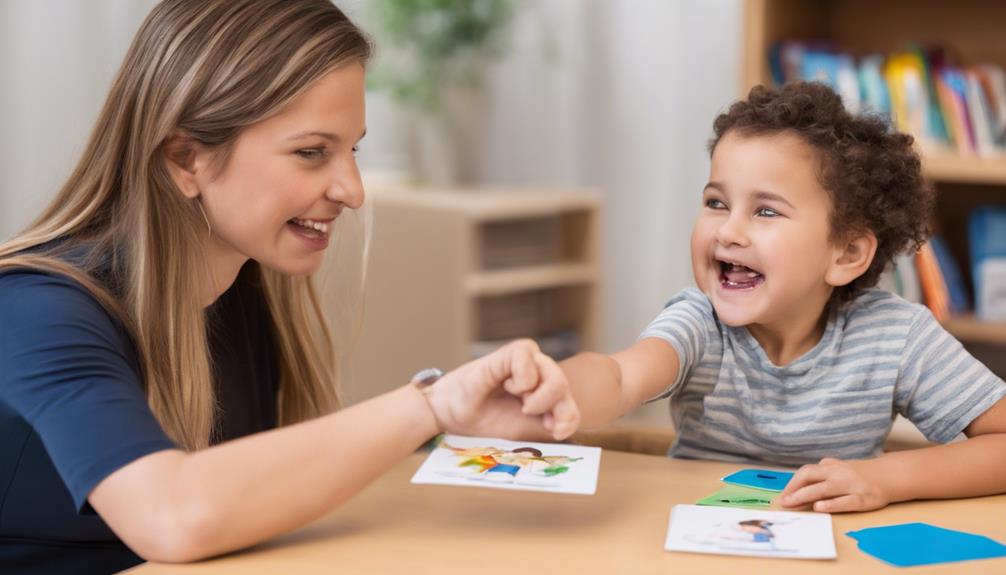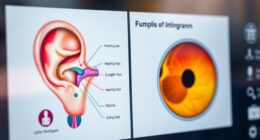When navigating the realm of auditory processing therapy programs, choosing the right fit can be akin to finding the perfect puzzle piece for your unique needs. With a myriad of options available, from speech therapy to computer-based training, the quest for the optimal program requires careful consideration.
By exploring factors such as severity of APD, age, and learning preferences, one can tailor a therapy approach that resonates with their individual requirements. Stay tuned as we unravel the intricacies of various auditory processing therapy programs and unveil insights to help you make an informed decision for your auditory health journey.
Key Takeaways
- Consider age and specific auditory challenges for tailored therapy.
- Choose evidence-based, customizable programs recommended by professionals.
- Evaluate Fast ForWord, Safe and Sound Protocol, L.A.C.E., and individualized therapy.
- Maximize benefits through consistent participation, communication, and personalized engagement.
Types of Auditory Processing Therapy Programs
When exploring types of auditory processing therapy programs, it's essential to consider the diverse approaches and techniques available to address specific needs and challenges. Fast ForWord stands out as a popular choice, focusing on rewiring neurological pathways to enhance processing skills effectively. The Safe and Sound Protocol, on the other hand, is known for its ability to reduce negative emotional responses while improving auditory processing abilities. Additionally, L.A.C.E. (Listening and Communication Enhancement) targets enhancing listening and communication skills for individuals facing auditory processing difficulties.
For those seeking convenience, at-home auditory processing therapy programs like Fast ForWord and the Safe and Sound Protocol offer accessible options to improve auditory skills. Online programs such as Fast ForWord and L.A.C.E. provide on-demand auditory training modules, enabling users to enhance their auditory processing capabilities from the comfort of their homes. These programs play a crucial role in addressing auditory challenges and fostering better listening and communication skills.
Factors to Consider When Choosing

Exploring auditory processing therapy programs requires careful consideration of various factors to ensure the most suitable program is selected based on individual needs and challenges. When choosing a therapy program, here are three key factors to consider:
- Age and Auditory Processing Challenges: It's crucial to consider the age of the individual and the specific auditory processing challenges they face. Different age groups may require varying approaches, and tailoring the program to address their specific difficulties is essential for effective therapy.
- Level of Customization and Individualization: Evaluate the extent to which the therapy program can be customized to address the unique needs of the individual. Personalized interventions tailored to their strengths and weaknesses can lead to more significant improvements in auditory processing skills.
- Evidence-Based Approach and Professional Input: Look for therapy programs backed by research evidence supporting their effectiveness. Additionally, seek recommendations from audiologists, speech-language pathologists, or other professionals with expertise in auditory processing disorders to ensure the chosen program aligns with best practices and standards in the field.
Comparison of Different Therapy Approaches
Utilizing a variety of therapy approaches enhances the effectiveness of auditory processing interventions for individuals facing challenges in this area. When comparing different auditory processing therapy programs, it's essential to consider factors such as the specific auditory deficits targeted, the level of personalization in treatment, and the accessibility of the program. Here is a comparison table of some popular therapy approaches:
| Therapy Approach | Focus |
|---|---|
| Fast ForWord | Auditory processing, language, reading |
| Safe and Sound Protocol | Stress reduction, calming responses |
| LACE | Listening, communication enhancement |
| Auditory Processing Center | Individualized therapy for specific deficits |
| Online Programs | Accessible therapy options from home |
Each therapy approach offers unique benefits, from computer-based programs like Fast ForWord to personalized treatments at the Auditory Processing Center. Online programs provide convenience and flexibility, while interactive exercises in LACE focus on improving listening skills. By understanding the differences between these approaches, individuals can make informed decisions to address their auditory processing needs effectively.
Success Stories of Therapy Programs

By sharing real-life experiences and testimonials, the impact of auditory processing therapy programs on individuals' lives becomes evident. Here are some success stories showcasing the positive outcomes of therapy programs designed to address specific auditory deficits and enhance auditory skills:
- Fast ForWord Program: A 10-year-old child with auditory processing difficulties struggled to follow instructions and comprehend conversations. After undergoing the Fast ForWord program at the Auditory Processing Center, significant improvements were noted in sound discrimination and language processing skills. The child's confidence and communication abilities flourished.
- Safe and Sound Protocol: An adult with APD experienced heightened sensitivity to sound, leading to anxiety and social withdrawal. Through one-on-one sessions with audiologists specializing in the Safe and Sound Protocol, the individual learned to manage APD symptoms effectively. The therapy resulted in reduced sensory overload and improved emotional well-being.
- L.A.C.E Program: A teenager with auditory memory challenges found it hard to retain information from lectures and discussions. Following personalized L.A.C.E therapy sessions, the teenager demonstrated remarkable progress in auditory memory retention and processing speed, leading to academic success and increased self-assurance.
Tips for Maximizing Therapy Benefits
Transitioning from success stories of therapy programs, individuals seeking to maximize the benefits of auditory processing therapy should actively engage in tailored programs and maintain consistent participation for optimal outcomes.
To make the most of your therapy program, it's crucial to choose a program that specifically targets your auditory processing deficits. By participating regularly in therapy sessions, you can promote neural reorganization and enhance skill improvement effectively.
Following the recommended exercises and activities provided by your therapy program is essential for making progress and overcoming challenges associated with auditory processing deficits. Communication with your therapist about your progress, challenges faced, and necessary adjustments for personalized treatment is key to ensuring that you're on the right track.
Finding the Right Program for You

To find the most suitable auditory processing therapy program for your needs, consider evaluating your specific deficits and researching programs that target those areas effectively. When looking for the right program for you, keep in mind the following:
- Identify Your Auditory Processing Deficits: Understanding your unique challenges will help you select a program that addresses your specific needs, whether it's difficulty with auditory discrimination, sequencing, or other areas.
- Choose a Tailored Program: Look for programs like Fast ForWord or L.A.C.E that focus on improving listening and communication skills, as these can provide targeted interventions for your auditory processing deficits.
- Consider Your Preference: Decide if an at-home program or in-person therapy sessions better fit your schedule and comfort level. Some individuals benefit more from the convenience of at-home programs, while others thrive with the structure of in-person therapy.
Frequently Asked Questions
What Is the Best Treatment for Auditory Processing Disorder?
When it comes to treating auditory processing disorder, the best approach involves targeted auditory therapy. This therapy can help reorganize neural pathways and improve specific deficits such as dichotic listening skills, auditory decoding, and phoneme training.
What Is the Best Reading Program for Auditory Processing Disorder?
When it comes to finding the best reading program for Auditory Processing Disorder, it's crucial to prioritize phonemic awareness, auditory discrimination, and comprehension skills.
Options like Fast ForWord and Lindamood-Bell have proven effective in enhancing reading abilities for individuals with APD.
Choosing a multi-sensory approach that integrates visual, auditory, and tactile elements can significantly boost learning outcomes.
Tailored programs that cater to individual needs and learning styles can optimize benefits for those with APD.
What Is the Program for Auditory Processing?
When looking for an auditory processing therapy program, it's crucial to consider options like Fast ForWord, Safe and Sound Protocol, and L.A.C.E. These programs focus on improving auditory skills through specialized exercises.
Each program offers unique benefits, so it's important to explore which one aligns best with your needs and goals. By discussing with a professional, you can determine the most suitable program to enhance your auditory processing abilities effectively.
What Are the 4 Types of Auditory Processing Disorder?
The four types of Auditory Processing Disorder (APD) include decoding, tolerance-fading memory, integration, and organization.
Decoding APD involves difficulty recognizing and interpreting sounds accurately.
Tolerance-fading memory APD affects the ability to retain and process auditory information over time.
Integration APD hinders the brain's ability to combine and make sense of different auditory inputs.
Organization APD impacts the arrangement and recall of auditory information in a coherent manner.
Conclusion
In conclusion, finding the best auditory processing therapy program for you is crucial for improving language comprehension and sound recognition.
By considering your specific needs and goals, consulting with healthcare professionals, and exploring different therapy approaches, you can find the right program tailored to your unique requirements.
Remember, just as every sound is different, so too is every individual's journey to better auditory processing. Keep exploring, keep learning, and keep listening to the world around you.











